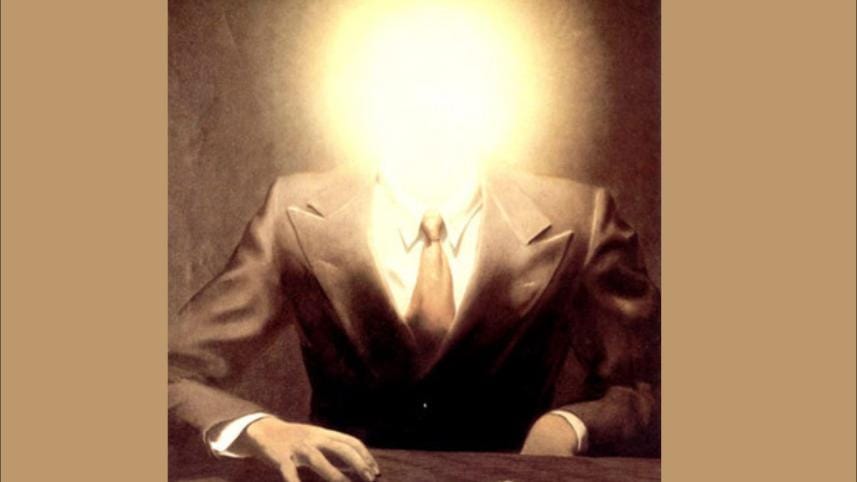Great ideals are ghost lights at night

An increase in elevation lowers air pressure, which makes breathing difficult for a climber. The underwater world becomes increasingly blue and eventually black as a diver goes deeper. Great ideals in their height or depth similarly vary, conception changing when it approaches perfection, and perfection changing when it approaches conception. In the end, neither is like how either appears to be.
The ideals are archetypes associated with the human condition. Beauty is the ideal of sensory state; duty is the ideal of action. Likewise, freedom is the ideal of movement, and happiness is the ideal of emotional state. Justice is the ideal of interaction, and virtue is the ideal of personality.
But the ideal exists in the real world in the same manner a dew drop wobbles on the tip of a leaf. The difference between God and His creatures perhaps draws the closest parallel to the difference between the highest forms of values and their actual manifestations. Humans have set lofty but unattainable moral goals for themselves.Not an overreach to say that the measures of existing human values are made of non-existing scales.
In that sense, we all worship virtues that are invisible like deities, and forever live in the twilight zone between the actual and the imaginary. And, that dichotomy is prevalent in the disappointing duplicity that we don't practice what we preach. Hypocrisy is lodged in human nature as naturally as oxygen in the air we breathe.
This is the reason why every human civilisation collapsed at its peak. According to German philosopher Oswald Spengler, "civilisations" are decadent phases of highly developed cultures. He characterised the social and intellectual patterns of a great people or empire in its prime as a "culture". When that culture passed its primeand became ossified or fixed, he called it a "civilisation".
Decadence setting in the culmination of a culture is proof that ideals ultimately don't stand it in good stead.And every civilisation has this truth buried in its ruins. Even worse, most civilisations were destroyed by the barbarians, which started with the earliest known civilisation of Sumer, in Mesopotamia. It collapsed under the strain of recurring invasions in the second millennium B.C.
Which amounts to the nightmare of a manicured lawn trampled by depraved beasts. The finest human emotions and beliefs stand helplessly before dishonesty, incompetence, hatred and violence. Rape during wars, persecution of citizens under dictatorships, ruthless killing in civil wars, and all of those happening ensemble during an invasion more than exemplify that the human condition is a contradiction in terms.
All humans are made of two instincts: animal and rational. Their condition in itself is a struggle between these two instincts that goes back and forth with more of one or the other. Thus the human condition is a struggle inside a struggle, as the physical constantly seeks alignment with the spiritual. It works like a weight-driven clock where the canon pinion drives a minute wheel and pinion. The latter drives an hour wheel, which carries the hour hand.
God may have made man in His own image, but the wheels and pinions that drive man are certainly not of the same industrial grade. Man's life is short, his means are scarce and his capacity to ingest eternity is immensely limited. Ideals are clumsy adventures of man to fit hismortal feet into God's shoes.
It's not surprising, therefore, that human beings are uncomfortable and sloppy in their walk through life. The cycles of crime and punishment, truth and falsehood, virtue and vice, hope and despondency, sympathy and vengeance, guile and gumption, compassion and aggression, so on and so forth keep repeating as the ideal falters through the realspewing imperfections. This dynamics is comparable to energy passing through water and creating waves.
Since the dawn of mankind, the quest for perfection has changed the style not the substance. The hunters and gatherers are still the hunters and gatherers, their tools and clothing transformed by the paroxysm of inventions and discoveries. But their primitive instincts have been honed even further either by rationalising animality or animalising rationality. Today's humans are devoid of humanity. They cling to their virtues to hide their vices like pre-historic men used fig leaves to cover modesty.
Idealism is thus a double jeopardy, at once misleading humans in their confused journey. This undertaking is difficult because wrong assumptions are incessantly driving wrong conclusions. What happens between womb and tomb is an ever-repeating experiment in whichthe finite is inexorably tested against the infinite.In that process, an idealistic individualis merely a parody of his destiny.
Great ideals are the ghost lights in the dark nights, and some travellers take them seriously. Those who sacrifice their livesfor greatcauses remain unaware that dying for a cause is just another cause of death.
The writer is Editor of the weekly First News and an opinion writer for The Daily Star.
Email: badrul151@yahoo.com



 For all latest news, follow The Daily Star's Google News channel.
For all latest news, follow The Daily Star's Google News channel.
Comments